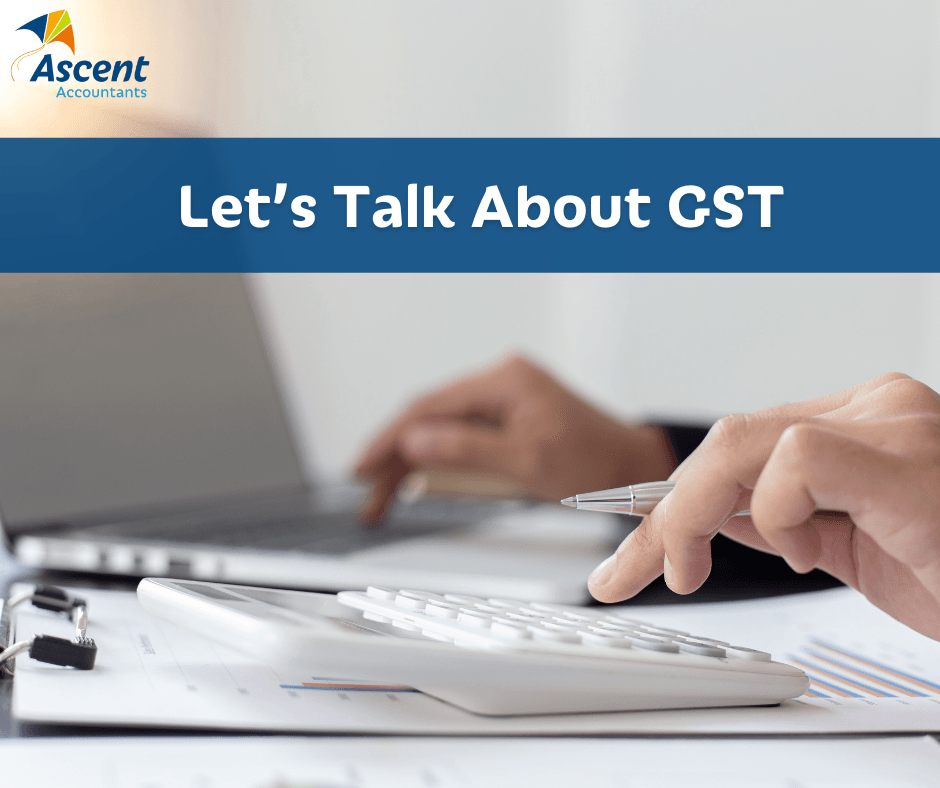Let’s Talk About GST

Overview
The Goods and Services Tax is a broad tax of 10% that is applied to most goods, services and other items sold or consumed in Australia.
How does it work?
Businesses take 10% of the cost of their goods and services, and pay this revenue to the Australian Taxation Office.
The government then takes this money and distributes it to the different states and territories to help pay for public services and infrastructures such as hospitals, roads and public schools.
Who is required to pay?
GST is super important and it plays a vital role in our society to help fund, build and support our communities.
You need to register for GST if you run a business or enterprise that has an annual turnover of $75,000 or more. If your business is a not for profit then that annual turnover moves up to being $150,000 before you are required to register and pay GST.
One other special case if you’re a taxi or rideshare driver. If this is the case, then you are required to register and pay GST regardless of your total annual income.
How do I register GST?
You need to register your business for GST though the ATO (Australian Taxation Office). When you do this, you will need to advise the start state of the registration and whether you will be reporting on a cash or accrual basis.
Reporting on a cash basis means that your GST will be reported when cash goes in and out of a bank account
Accrual basis means your GST is reported based on invoice dates, rather than when cash is coming in and out of your bank account.
Your accountant or bookkeeper will be able to advise you on the best method of reporting your GST.
Once you have successfully registered your business for GST with the ATO, you will need to provide your reports of your sales and expenses in a document called a ‘Business Activity Statement’ (also known as a BAS).
GST credits is the GST that you have generated as a business expense to create your goods and services. They are called ‘Input Tax Credits’. The ATO will then allow you to claim back the GST credits you have incurred as part of your expenses to provide your goods or service.
Claiming GST Credits
To claim GST credits, you will need to have your business registered for GST.
You are able to claim these GST credits when:
- You intend to use your purchase solely or partly for your business, and the purchase does not relate to making input-taxed supplies.
- The purchase price included GST
- You provide or are liable to provide payment for the item you purchased
- You have a tax invoice from your supplier (for purchases more than A$82.50).
If you want to know more, please speak to one of our accounts at Ascent Accountants on 08 6336 6200
Need help with your accounting?








